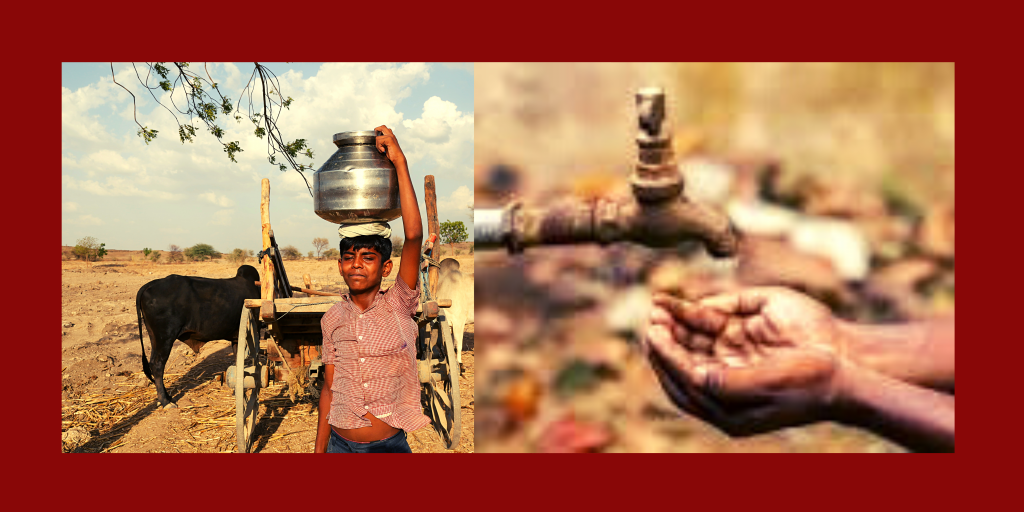Under the blazing heat of Karachi’s summer, residents of Orangi Town stand in long-awaited queues to fill blue canisters with water. Being amongst the 2.4 million people of one of the largest slums in the world, Faisal Riaz, stands awaiting his turn, feeling sweat fill his eyebrows, while flowing further down and stinging his eyes.
“We all have to wait for 5-6 hours to get to our turn and fill two canisters of water,” says a 39-year-old Riaz. His office starts at 7:00 am, and he is expected to be there, however, he oftens fails to be on time due to long queues that start forming from as early as midnight.
“Oftentimes, my wife has to fill the water canisters because I am running late for work, but then again I mostly end up being late because there is little water to bathe and no electricity to iron my clothes,” says Riaz.
The predicament of people living in other parts of Karachi remains no different; since the megapolis struggles to provide basic amenities to its growing population. Authorities lack the skills and resources to tackle climate change, heat waves, and broken infrastructure.
According to Sana Atif, a resident of Nazimabad, taps have run dry, and water has become a profession in the city. The burgeoning demand for water is seldom met by the ever-depleted supply of water, resulting in the monopolization of water supplies by the so-called “water mafia.”
Riaz asserts, “Running water is now an anomaly for many of us and the only way to access water is through buying it from the tanker mafia.” The mafia sells water at different prices predominantly based on the water’s quality.
The Sarkari Paani (government’s water) is deemed to be the cleanest, so it is sold at the highest price rate, approximating PKR 25,000 a month. This amount is equivalent to the newly fixed minimum wage rate in Pakistan. What is sold at a relatively lower price is the brackish water, which makes the user susceptible to water-borne diseases such as cholera.
The unequal access and distribution of clean drinkable water coupled with ineffective management and the rise of Water Mafia is believed to be the root cause of the water crisis in Karachi. Albeit this holds truth, what is often deemed trivial is the far-ranging impact of climate change.
Dr Pervaiz Amir, an environmental economist and former member of Prime Minister’s task force on climate change, asserts, “Pakistan is facing a full-blown climate change crisis since droughts and heat waves have now become a norm.”
The terrifying adversary for Karachi and Pakistan, at large, remains the lesser accepted climate change. An inexhaustible amount of focus is expended on other malpractices, but a little attention is paid to the ferocious and imminent dangers of climate disasters by the authorities.
“Without massive efforts for investment in adaptation to climate change and sustainable alternatives, the economic situation looks bleak,” believes Amir. “We are to expect a major decline in crop and livestock productivity.”
The writer is a Journalism student at Northwestern University.




